New Hampshire is famous for its breathtaking natural beauty, but something to consider before heading out on your next wilderness walk in The Granite State is that wherever there is a lot of natural beauty, there are a LOT of bugs, and some of them ain’t nice!
In fact, much like the natural landscapes of this state, some of these bug thugs will take your breath away… for good.
From sinister spiders to nasty gnats, and from terrible ticks to horrible hornets, New Hampshire has its fair share of creepy crawlers and flagitious flyers.
So, in order to help you stay safe, let’s run through the 5 most dangerous bugs in the state.
The Black Widow
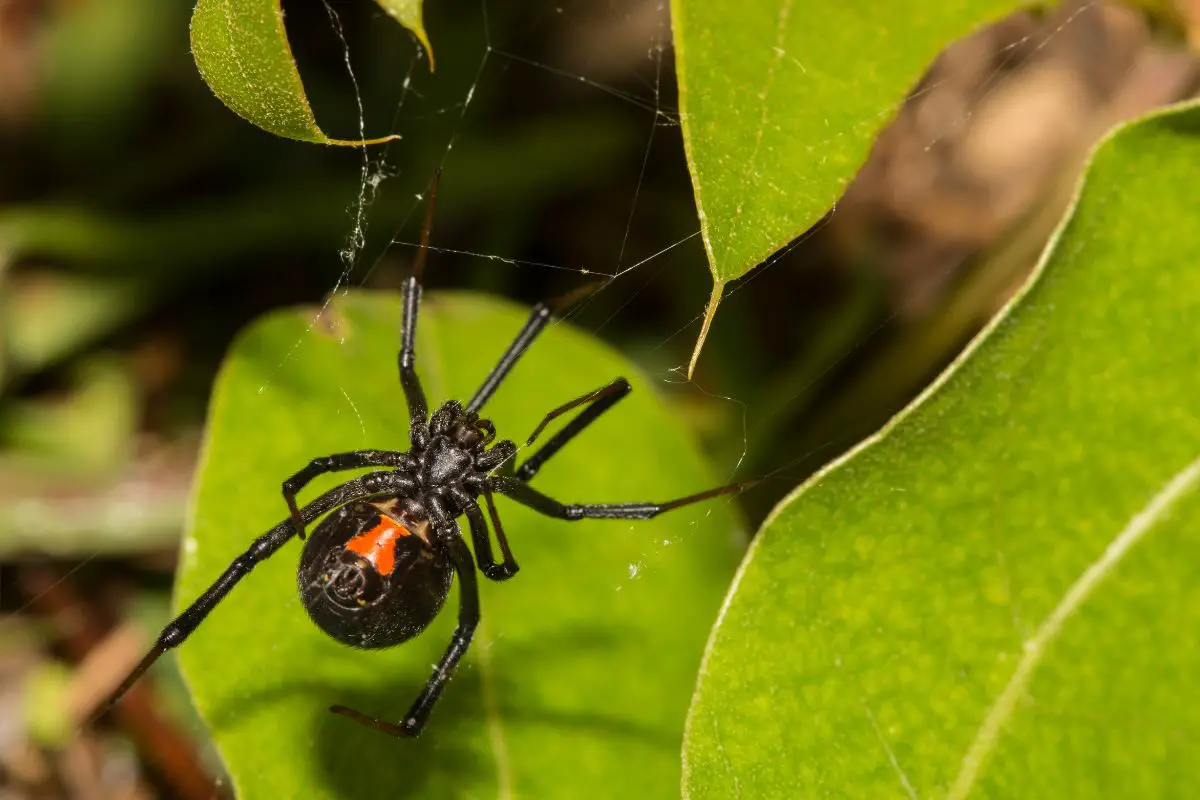
With its coal-black body and blood-red hourglass markings, the black widow is a truly terrifying vision, but even more jarring than its appearance is its venomous bite!
While it typically reserves its poison for prey, if this spider feels threatened by people or animals, it will not hesitate to strike.
Once bitten, you can expect to experience a number of horrible symptoms, including severe abdominal rigidity or cramping, tremors, nausea, and vomiting.
Their venom contains various neurotoxins called latrotoxins that target the nervous system. The bite will feel like nothing more than a little pinprick, but as this venom surges through your bloodstream, pain and swelling follows suit.
Will you die if you get bitten? No, probably not, as only about 1.4% of those bitten by a black widow experience life-threatening symptoms, but if you belong to a vulnerable demographic, i.e. seniors or children, the black widow’s kiss can indeed be fatal.
Thankfully, due to their bulbous abdomens and striking red markings, these spiders are incredibly easy to spot, so you’ve got a good chance of evading their wrath, especially as they’re known to employ alternative safety measures before chomping on a foe.
If a black widow feels threatened, first it will flee to cover, and if there is no cover, it’ll play dead for a while and hope you leave them alone.
Typically, it’s only when the spider feels it has no other option that it decides enough is enough and sinks its venomous fangs into our skin.
So, the moral of the spidery story here is the old do unto others as you would do unto yourself chestnut. In other words, be nice to black widows, and they’ll be nice to us!
Bald-Faced Hornet
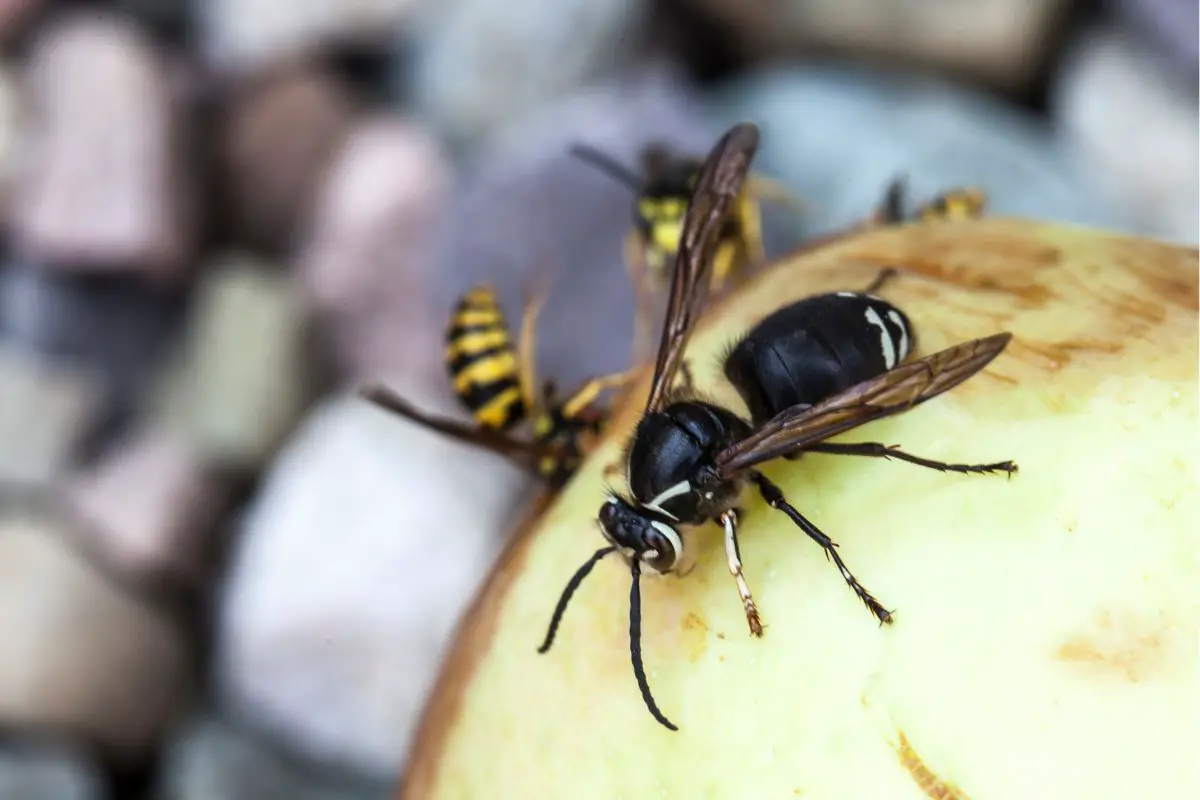
While these flying hazards technically belong to the yellow-jacket family of wasps, and not a hornet family, at nearly an inch long, they sure could fool any unlucky soul that crosses their path.
Incredibly territorial creatures, bald-faced hornets will not hesitate to confront and sting you, and being that upward of 10 stings will require immediate medical attention, it’s crucial that you stay away from their nests that can accommodate as many as 400 wasps.
But it’s not just the painful sting of bald-faced hornets that you should be worried about, as the females of the species opt for a slightly different mode of attack… venomous spray!
Yep, that’s right, folks; get on the wrong side of one of these flying femme fatales and you may well be temporarily blinded by their airborne toxins. Essentially, this is nature’s answer to pepper spray, and it hurts like heck, so, again, stay well away from their nests.
The good news is that, much like the black widow spider, bald-faced hornet nests are very distinctive, so you’ll know to keep away when you spot one. They’re typically built quite low to the floor and can reach upwards of two feet down.
They can appear under the eves of houses as well, so be on the lookout both high and low when these terrors are in season.
Rather than deal with a bald-faced hornet infestation yourself, call a professional pest control expert to handle things for you, as removing a nest is very difficult to do safely!
Mosquitos (Gnats)
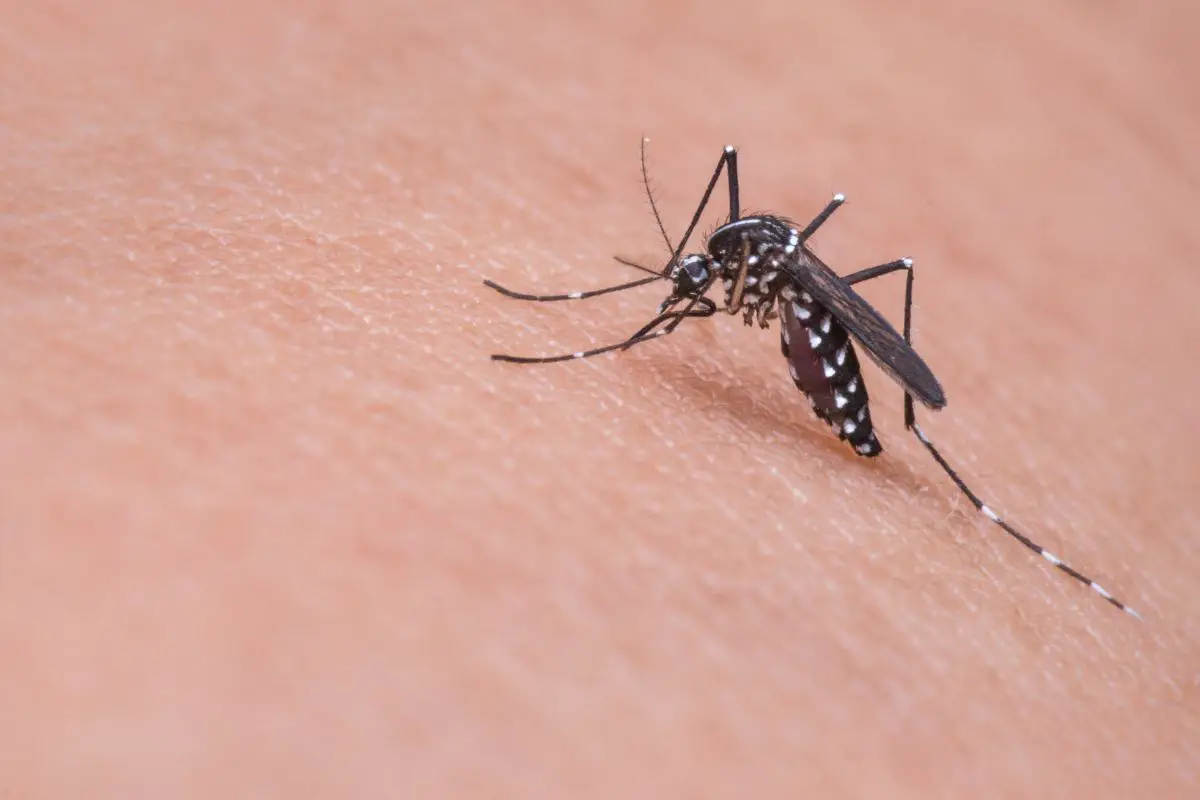
The mosquito is an interesting entry on this list, as its bite isn’t necessarily the worst in the insect world (although it is itchy), but the consequences of the bite can be much worse than that of the black widow.
Mosquitoes are known carriers of a number of nasty diseases. To name just a few, the West Nile virus, the Zika virus, and Eastern equine encephalitis.
While the chances of you contracting one of the many diseases on the mosquito roster are really quite slim, their sheer number makes them a serious threat.
For example, causing 725,000 deaths a year, did you know that mosquitos are the most prolific human killers on planet Earth? This death toll exceeds even that of human-caused fatalities by a whopping 300,000 deaths a year.
In light of this, it’s best to play it safe and protect yourself against possible bites before heading out into gnat territory.
Make sure your arms and legs are covered and use plenty of mosquito repellent, especially if you’ll be anywhere near stagnant water, as this is where they tend to hang it, and in vast numbers too!
Brown Recluse Spider
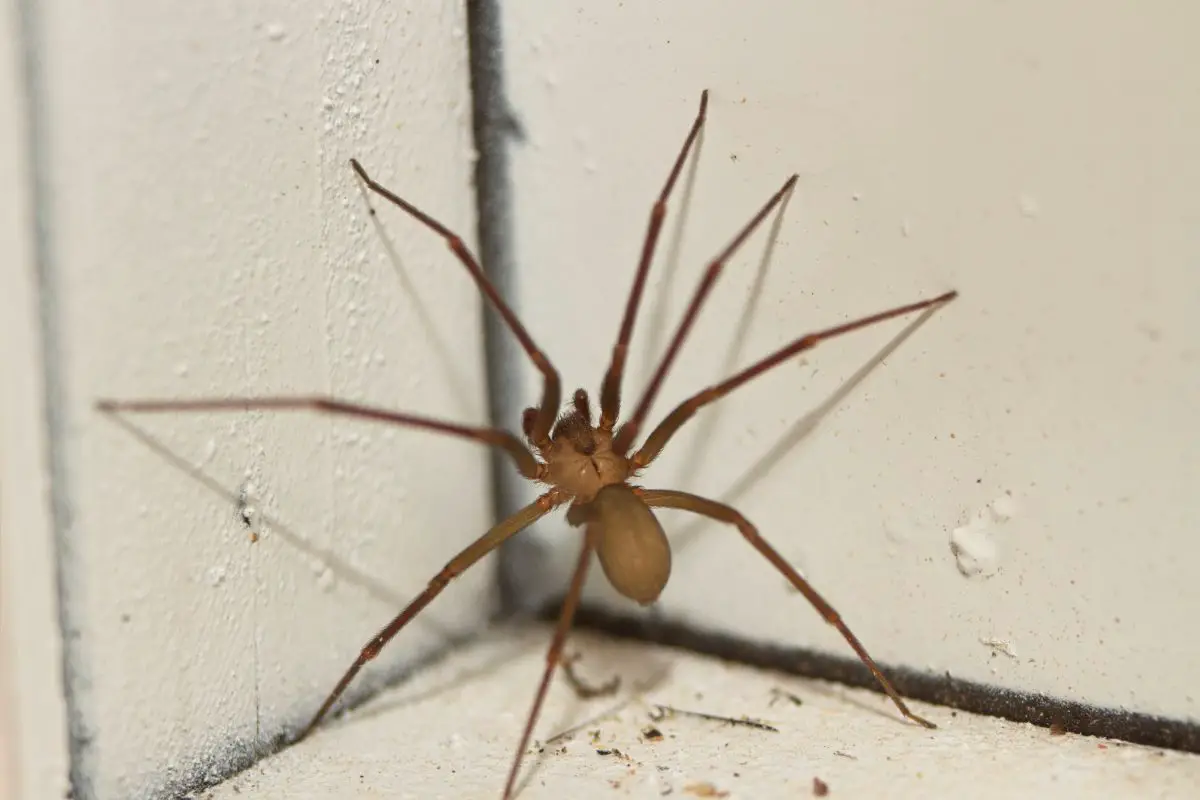
The brown recluse may not look quite as deadly as the black widow, but trust me, they should be feared in equal measure.
Whereas the toxins in black widow venom affect the nervous system, the venom of a brown recluse can cause necrosis, meaning the tissue around the bite can literally start to die!
So, if you’d like to avoid a serious case of zombie skin, look out for brown spiders about the size of a quarter.
They can be identified by the violin-shaped marking on their back, and – if you’re unfortunate enough to be that close – by its 6 rather than 8 eyes, arranged in two sets of three.
But you’ll be pleased to know that they don’t call it the brown recluse for nothin’! These spiders are incredibly shy, which is why they make dark, quiet places their home and are only ever active at night.
Having said that, they will sink their fangs if they feel like you’re a threat, so be sure to back way off if you run into one of these critters.
The crazy thing is, if you do get bitten by a brown recluse, you may not even notice at first, and shortly after, you may mistake it for any other bug bite, but after a couple of days, you’ll see blistering around the growing, darkening wound.
A serious bite unaddressed will likely lead to necrosis, signaled by ulceration, blackening flesh, and an eventual scab-like crust.
At this stage, it’s easy for infection to set in and the venom to sink deeper into your fat and muscle tissue. With no intervention, a bad brown recluse bite can be fatal.
The Deer Tick
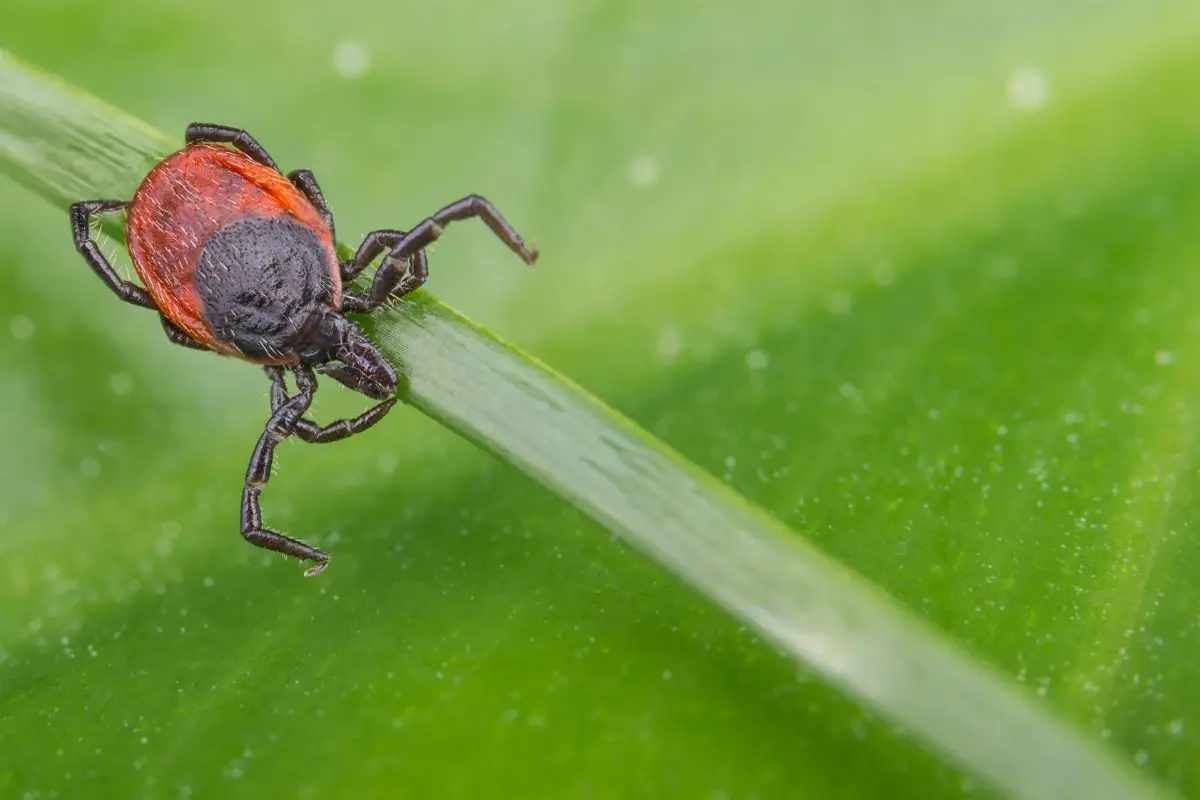
Much like the mosquito, the deer tick’s bite isn’t all that bad, but as common carriers of Lyme disease, they’re not to be taken lightly, especially as, unlike the spiders on this list, they’ll actively seek out some juicy human flesh to gnaw on.
And whereas some good repellants will keep mosquitoes at bay, ticks aren’t so easily controlled, so it’s essential to cover up when traveling through potential tick hotbeds.
They’re most prevalent in wooded areas, but they can just as easily make our backyards their homes, so keep that lawn nice and trim!
Final Thoughts
There you have it — 5 dangerous bugs to be wary of in the state of New Hampshire.
As long as you seek medical attention ASAP if you get on the wrong side of one of these bugs, you’ve got very little to worry about, but leave your wounds untreated, and things can deteriorate rapidly. Stay safe out there, folks!


![Best Window Replacement Company In New Hampshire [My Experience]](https://hereinnewhampshire.com/wp-content/uploads/2022/09/Best-window-replacement-company-in-New-Hampshire-300x225.jpg)
